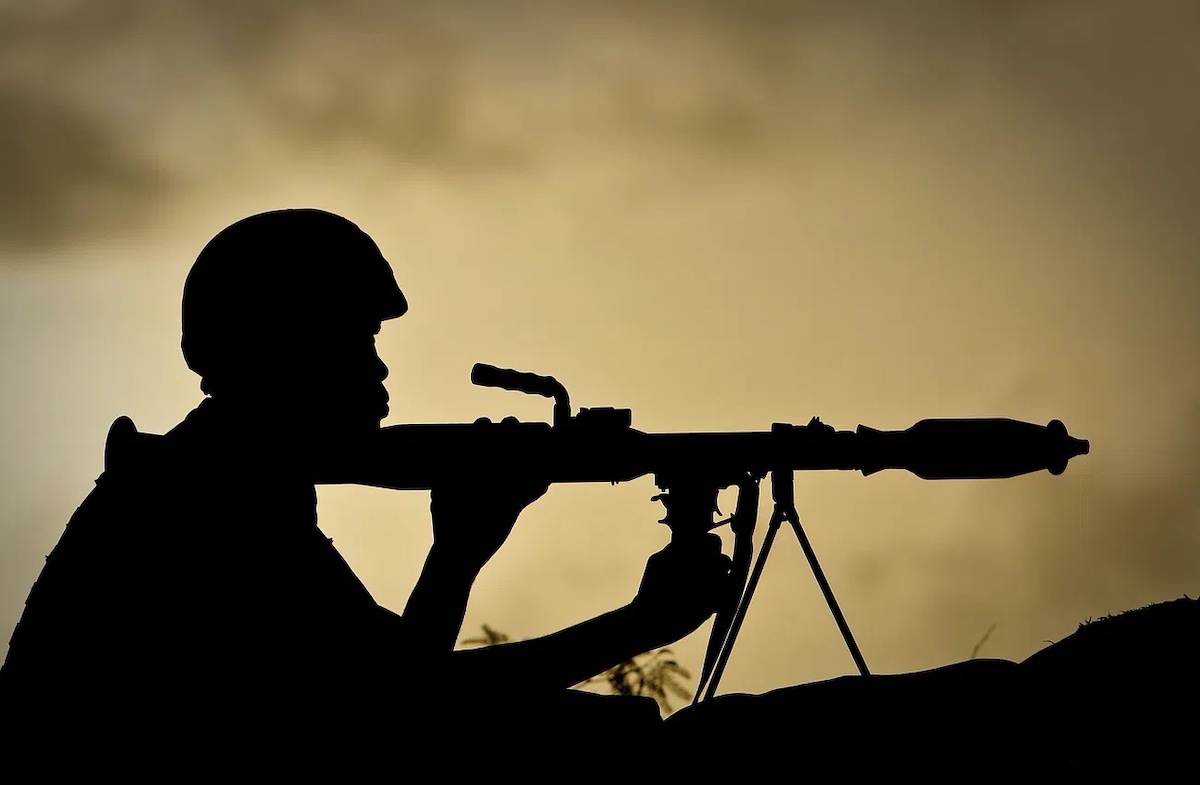On June 10, UK Defence Intelligence said that Russia is intensifying efforts to recruit fighters from African countries to bolster its military in the ongoing Ukraine war.
This move is seen as a clear indication that Moscow is grappling with a significant shortage of mobilization resources, particularly prisoners, a group it has heavily relied upon to mitigate public dissatisfaction with the war.
The UK Ministry of Defence, in its latest intelligence update, highlighted that on May 28, Ukraine’s Main Directorate of Intelligence reported an uptick in Russian recruitment activities targeting Central African nations, including Rwanda, Burundi, Congo, and Uganda.
Russia is offering attractive incentives to these potential recruits, including a $2,000 registration bonus, a $2,200 monthly salary, and the promise of a Russian passport.
British intelligence assesses that this aggressive recruitment drive is aimed at compensating for the severe losses suffered by the Russian military on the battlefield and sustaining offensive operations on multiple fronts.
AfriPrime App link: FREE to download...
https://www.amazon.com/Africircle-AfriPrime/dp/B0D2M3F2JT
With the domestic pool of prisoners nearly exhausted, Russia appears to be looking towards the Global South to fill its ranks and avoid further mobilization within its own borders.
“The previous mobilization for the war resulted in a record labor shortage and an exodus of skilled workers such as doctors and IT professionals,” the UK Ministry of Defence stated, underscoring the domestic challenges that further mobilization would pose.
In a related development reported by Bloomberg, Russian officials have allegedly resorted to coercive measures to compel African migrant workers and students to join the armed forces.
Threats of visa non-renewal and deportation have been issued to those unwilling to participate in the conflict, with some individuals resorting to bribery to evade conscription.
This latest recruitment drive underscores Russia’s reliance on unconventional tactics to replenish its military ranks amid sustained attrition warfare. The country’s strategy has notably included the recruitment of prisoners, leading to a significant reduction in the national prison population.
Late last year, Deputy Justice Minister Vsevolod Vukolov said that Russia’s prison population has plummeted to a historic low of 266,000, down from 420,000 before the conflict.

This drastic reduction has even led to the closure of some prisons, as highlighted by a local official in March who told lawmakers that the prison closures were due to “a one-time large reduction in the number of convicts,” as reported by the Russian newspaper Kommersant.
Ukraine Is Also Facing Shortage Of Frontline Forces
Ukraine has also begun recruiting prisoners, including those convicted of murder or fraud, to strengthen its frontline forces against Russia under a newly passed law.
This new law, approved by Ukraine’s parliament last month, offers certain convicts a chance at freedom in exchange for joining a combat unit, echoing a strategy used by Moscow since its full-scale invasion in 2022.
The initiative aims to mobilize several thousand recruits from a prison population of about 20,000. This number represents only a fraction of the hundreds of thousands of new soldiers Ukraine estimates it will need this year to counter Russian advances.
Despite drawing from similar manpower needs, Ukraine has imposed stricter eligibility conditions to differentiate its recruitment from Russia’s more indiscriminate practices.
According to Olena Shuliak, an MP from President Zelenskyy’s party, those excluded from eligibility include serial murderers, drug traffickers, and individuals convicted of sexual violence, corruption, or crimes against national security.

Men convicted of a single murder can enlist unless they have also been found guilty of rape. Additionally, high-ranking former politicians and ministers serving prison terms are also barred from joining.
“It is only possible to withstand the conditions of a total war against an enemy with more resources by consolidating all [our] forces. This draft law is about our struggle and preservation of Ukrainian statehood,” she wrote on social media.
Prisoners who volunteer are required to pass physical and mental health tests and have at least three years remaining on their sentences. They will serve in special units for the duration of the war or until demobilized.
Under the new law, failure to complete military service or attempting to defect will result in five to ten years of imprisonment, and any additional crimes committed while serving will add the remainder of their previous sentence to their new one.
AfriPrime App link: FREE to download...


